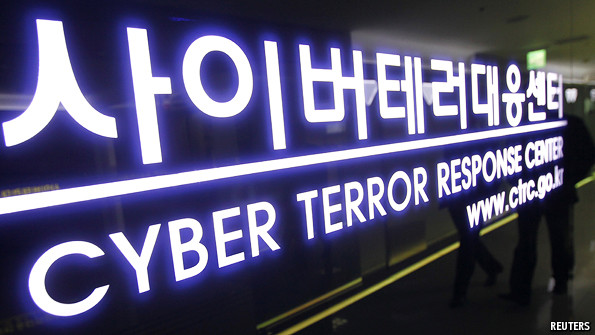
From Economist: Earlier this month the Department of Defence delivered a report to Congress accusing the hermit kingdom’s expanding army of “cyber-warriors” of using foreign infrastructure, such as broadband networks, to launch cyber-attacks on American allies, most notably South Korea.
Kim Jong Un, North Korea’s fresh-faced dictator, is said to have 4,000 loyal cyber-warriors at his disposal. Brightest sparks at the sharp end of Songbun, the North’s rigid social hierarchy, are plucked from school to train as elite hackers. Following graduation they are often posted in China and Europe to wreak digital havoc, says Sun Chul Kim, a cyber-security expert at Korea University in Seoul.
According to American report, cyber-warfare is a cost-effective way for North Korea to boost its military capabilities, which may explain the keen interest Mr Kim has taken in it. Prominent web security analysts such as Rob Rachwald of FireEye, an American firm, agree that the tools used in a recent cyber-attack on South Korea could have cost just tens of thousands of dollars, compared to the estimated $1.3 billion the North spent on its rocket programme last year. . . .
This worries the South. Since the start of the year it has doubled the number of experts at its "cyber-command" to 1,000. As one of the world’s most connected nations South Korea represents a tempting target for cyber attacks. Whereas its government systems are well protected, South Korean companies and individuals often are not: the attacks on March 20th exploited vulnerabilities that were previously known. Digitally deprived North Korea, meanwhile, is one of the safest places in the world in this respect. (photo: Reuters)
Image: reuters%205%2021%2013%20cyber%20terror%20response%20center.jpg
